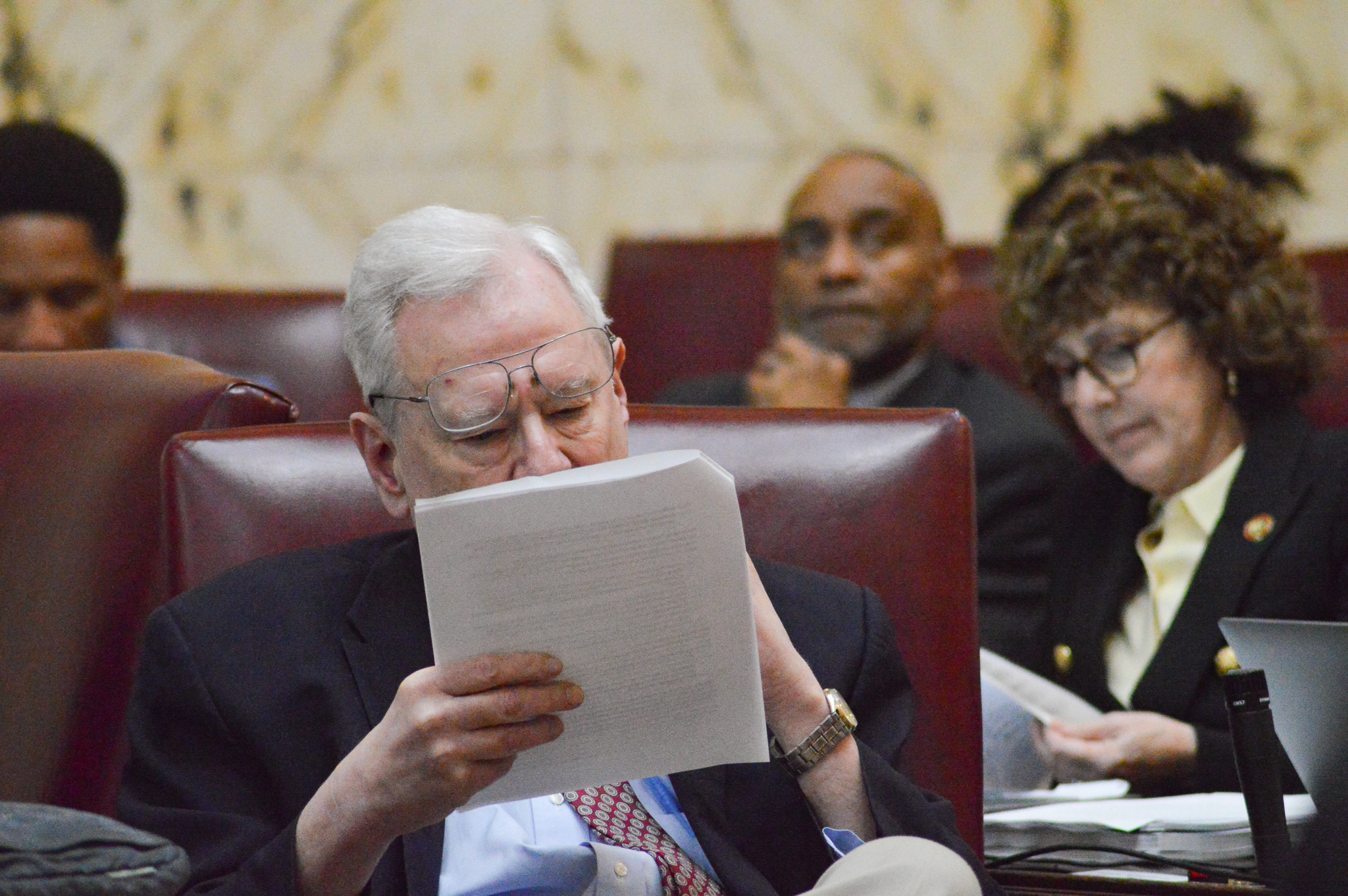ANNAPOLIS–Maryland lawmakers passed a bill this week revising the state’s expensive education reform plan, making marginal cuts instead of the more dramatic rollbacks proposed earlier this year.
The bill, initially introduced by Gov. Wes Moore in January, reforms the Blueprint for Maryland’s Future. Freezes to annual funding increases supporting students in poverty, special education students and English language learners were among the most controversial of Moore’s proposals.
But as the bill made its way through the General Assembly, members of the House and Senate pushed to fully implement and fund programs they deemed most necessary under the Blueprint.
And when it passed Monday, it had been watered down to include only a few program changes and less sweeping budgetary cuts.
“At a time when the federal government is trying to eliminate the Department of Education and gut funding for schools from Mount Maryland to the Eastern Shore,” Moore said Tuesday, “we’ve delivered the largest single investment in K-12 education in the history of our state.”
Federal cuts left the legislature searching for ways to cut funding – especially after news from the federal government that up to $418 million in state education spending would not be reimbursed as previously expected.
But lawmakers decided that funding increases under the Blueprint for special education students, English language learners and schools experiencing high rates of poverty were too crucial to pause.
The most major cuts targeted the Blueprint’s collaborative time initiative, requiring that teachers spend a portion of their workday planning. For the next three years, schools will not be required by the state to meet the priorly established teacher planning thresholds. Funding increases will also be paused for fiscal years 2027 and 2028.
The act also introduces a teacher recruitment and retention campaign and establishes a relocation incentive grant to bring teachers to Maryland.
“I think the bill that passed is fine, I mean, I think it makes some relatively modest changes,” said Sen. Jim Rosapepe, a Democrat representing Prince George’s and Anne Arundel Counties. “I don’t think it’s a big deal. I think it’s a little deal.”
While Rosapepe said lawmakers wanted to “make less changes for now,” he wished some of the proposals in Moore’s initial bill for teacher coaching and school leadership training programs had made it to the final cut.
But the bill received “no” votes from Republican lawmakers. While much of the discourse on the bill focused on the decision to raise taxes rather than pausing more Blueprint initiatives, Sen. Jack Bailey, a Republican representing Calvert and St. Mary’s Counties, said he voted against the bill because of the financial burden that it might place on counties.
Del. Matt Morgan, a Republican representing St. Mary’s County, said the delay in collaborative time is a “move in the right direction,” but that collaborative time should be delayed further.
Sen. Justin Ready, a Republican representing Carroll and Frederick Counties, echoed his sentiments during an April budget discussion.
“There’s no question that we’ve increased spending dramatically in education for the last 25 years, and our SAT scores are worse, our reading scores are worse, math is worse,” said Ready. “While we’re not suggesting you want to cut education from where you are now, we are saying we should slow down how fast we’re going and not raise taxes on working Marylanders for a little while longer.”

